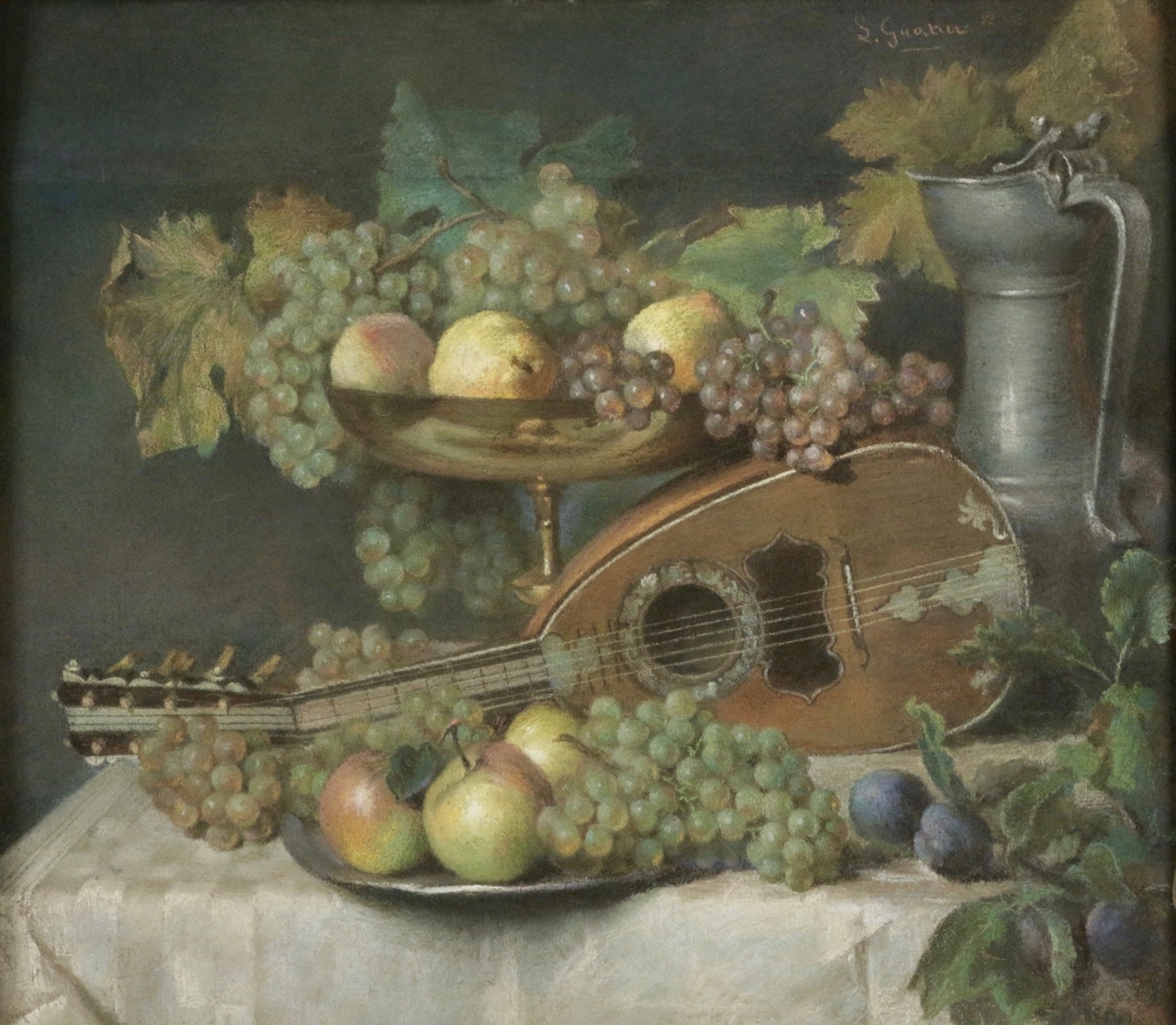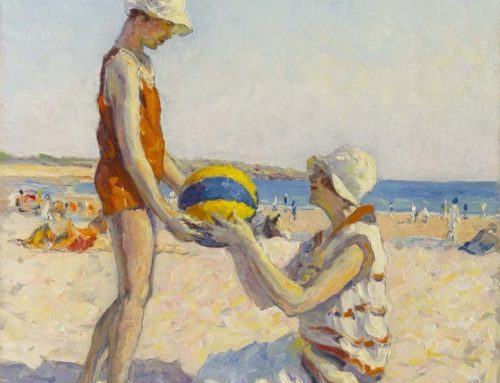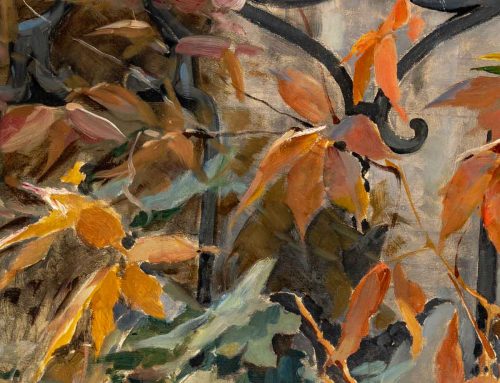
On the occasion of the “Pastels, de Millet à Redon” exhibition at the Musée d’Orsay, which we have just visited, we are delighted to highlight our magnificent pastel, dated 1852, by Charles Louis GRATIA (1815 – 1911) a French painter and pastellist of the Nancy school, “Nature morte à la mandoline”.
Charles, Louis, Gratia made his own pastels and wrote a treatise on the process. Using very rare powders and pigments, he achieved delicate shades and a long-lasting texture.
The Musée d’Orsay exhibition showcases an exceptional selection of pastel works by renowned artists of the 19th and 20th centuries. Pastel is a medium distinguished by its richness of color, soft, velvety texture and vibrant intensity. It’s a singular art form, neither drawing nor painting, that offers an immediate relationship with the material.
Pastel took off in the 17th century, and gained its letters of nobility in the 18th century, considered its golden age. It was in the mid-19th century that the use of pastels spread to all genres.
The exhibition features masterpieces by famous painters such as Jean-François Millet: his pastels, often painted en plein air, capture the beauty of nature and demonstrate his mastery of contrasts and textures. There are also works by Edgar Degas, a master of pastels and the Impressionist movement. Her paintings of dancers, ballet scenes and intimate women reveal her remarkable technique and ability to capture the moment. Mary Cassatt, an American artist associated with the Impressionist movement, is also represented in this exhibition. Her pastels often depict moments of everyday life, highlighting family ties and women’s intimacy. Finally, Odilon Redon, known for his mysterious symbolism, creates intriguing, evocative works. Her pastels, imbued with dreaminess and fantasy, transport the viewer into a world both strange and wonderful.
We urge you to visit this exhibition and let yourself be enchanted by the timeless beauty of pastels.



